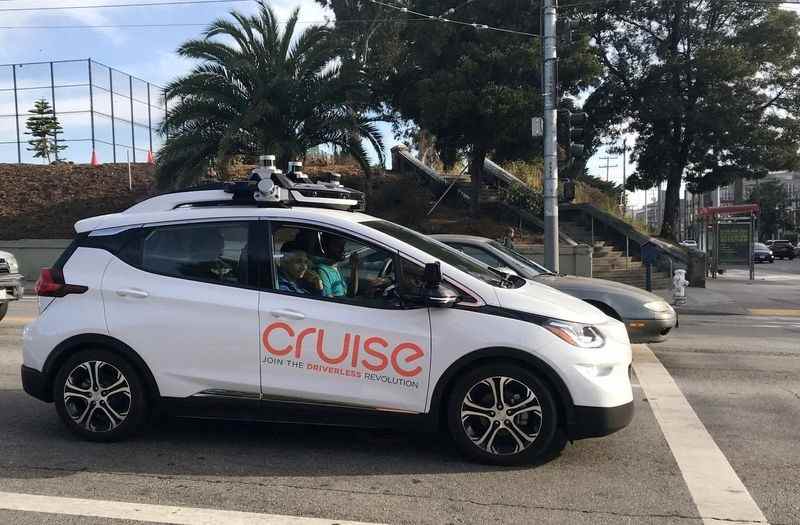GM's Cruise suspends its employee equity program

Image: Collected
Cruise, the robo-taxi unit of General Motors, on Thursday suspended the program under which GM buys back employees' shares, following an accident that led to the pause of its self-driving vehicle operations.
In an email to staff seen by Reuters, Cruise CEO Kyle Vogt said the company will re-evaluate the employee equity program in light of the suspension, which "pushed out our commercialization and revenue generation timelines."
He said recent events have "materially changed the situation that existed at the time of the last valuation."
California regulators in November ordered Cruise to remove its driverless cars from state roads, calling the vehicles a risk to the public and saying the company had "misrepresented" the safety of the technology. The regulator said Cruise had not initially disclosed all video footage of an Oct. 2 accident where Cruise's car dragged a pedestrian in San Francisco.
Cruise has said it showed officials of the California Department of Motor Vehicles the complete video of the accident multiple times and provided a copy to officials. Cruise has since launched an internal review of the response to regulators and company's automated driving system.
Cruise has this month laid off at least hundreds of contractors who operate and maintain their robotaxi fleets in California, Arizona and elsewhere, according to sources.
The unlisted Cruise unit last year introduced the equity program under which current and former employees can sell their vested equity to GM and other investors every quarter. Cancelling the program designed to help attract and retain talent could cause some people to leave more rapidly, while helping cut costs for GM.
"They may be looking to shave some costs in various areas," Guidehouse Insights analyst Sam Abuelsamid said, adding that the automaker's labour deal with the United Auto Workers (UAW) will be costly.
Asked about the Thursday's email from Vogt, a Cruise spokesperson said, "GM and Cruise are working together on what competitive compensation packages at Cruise will look like going forward."
The email said Cruise will move up a bonus payout to January 2024 instead of March. It also said that Friday, Nov. 17, "will be a Cruise rest day - please take the time to recharge."
Cruise has lost more than $8 billion since 2017, including $728 million lost in the third quarter of this year, according to GM financial disclosures. Cruise had $1.7 billion in cash as of Sept. 30, enough to last nine months at the current cash burn rate.
In an email to staff seen by Reuters, Cruise CEO Kyle Vogt said the company will re-evaluate the employee equity program in light of the suspension, which "pushed out our commercialization and revenue generation timelines."
He said recent events have "materially changed the situation that existed at the time of the last valuation."
California regulators in November ordered Cruise to remove its driverless cars from state roads, calling the vehicles a risk to the public and saying the company had "misrepresented" the safety of the technology. The regulator said Cruise had not initially disclosed all video footage of an Oct. 2 accident where Cruise's car dragged a pedestrian in San Francisco.
Cruise has said it showed officials of the California Department of Motor Vehicles the complete video of the accident multiple times and provided a copy to officials. Cruise has since launched an internal review of the response to regulators and company's automated driving system.
Cruise has this month laid off at least hundreds of contractors who operate and maintain their robotaxi fleets in California, Arizona and elsewhere, according to sources.
The unlisted Cruise unit last year introduced the equity program under which current and former employees can sell their vested equity to GM and other investors every quarter. Cancelling the program designed to help attract and retain talent could cause some people to leave more rapidly, while helping cut costs for GM.
"They may be looking to shave some costs in various areas," Guidehouse Insights analyst Sam Abuelsamid said, adding that the automaker's labour deal with the United Auto Workers (UAW) will be costly.
Asked about the Thursday's email from Vogt, a Cruise spokesperson said, "GM and Cruise are working together on what competitive compensation packages at Cruise will look like going forward."
The email said Cruise will move up a bonus payout to January 2024 instead of March. It also said that Friday, Nov. 17, "will be a Cruise rest day - please take the time to recharge."
Cruise has lost more than $8 billion since 2017, including $728 million lost in the third quarter of this year, according to GM financial disclosures. Cruise had $1.7 billion in cash as of Sept. 30, enough to last nine months at the current cash burn rate.
Source: https://www.yahoo.com
Previous Story
- Fisker cuts 2023 production forecast as it struggles...
- Vinfast Wants To Sell The Cheapest EV In...
- More alarm bells sound on slowing demand for...
- This Butt Plug Will Allow Toyota To Build...
- The Electrifying Rise of Electric Vehicles in the...
- China's EV sector is hemorrhaging cash - and...
- Huawei and Chery Autos claim their first production...
- California shows that an EV uprising is headed...